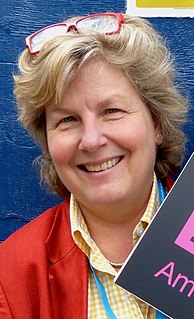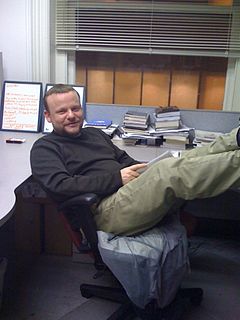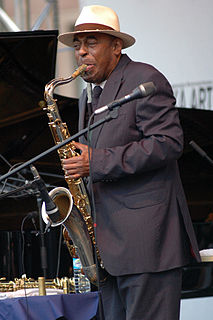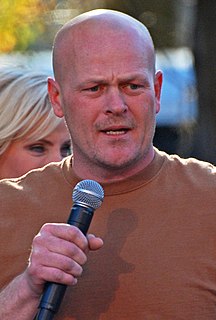A Quote by Ambrose Bierce
Hash, x. There is no definition for this word - nobody knows what hash is. Famous, adj. Conspicuously miserable. Dictionary, n. A malevolent literary device for cramping the growth of a language and making it hard and inelastic. This dictionary, however, is a most useful work.
Related Quotes
The dictionary has been in the making for several decades, and the result is well worth the wait. MacLean and those who worked with her have consulted with Iñupiaq speakers from across Alaska's North Slope to compile a comprehensive collection of word stems, along with postbases, grammatical endings, and an array of other valuable material. . . . This dictionary will prove fascinating for anyone interested in the Iñupiat and their language.
Music is a language, and it's like a dictionary that has a lot of words, but if you limited yourself to a couple of definitions you would be illiterate. If one limits oneself to a peculiar definition like 'new music,' 'avant-garde,' or something like that, I think it's like cutting out half the dictionary.
I laughed and pointed out that "Hash Browns Mean Nothing Without You" was a pretty good name for a band. "Or a song," the Duke said, and then she started singing all glam rock, a glove up to her face holding an imaginary mic as she rocked out an a cappella power ballad. "Oh, I deep fried for you / But now I weep 'n' cry for you / Oh, babe, this meal was made for two / And these hash browns mean nothing, oh these hash browns mean nothing, yeah these HASH BROWNS MEAN NOTHIN' without you.
The bold and discerning writer who, recognizing the truth that language must grow by innovation if it grow at all, makes new words and uses the old in an unfamiliar sense has no following and is tartly reminded that 'it isn't in the dictionary' - although down to the time of the first lexicographer no author ever had used a word that was in the dictionary.
I subscribe to the online Urban Dictionary's definition of nerd: 'one whose IQ exceeds his weight'. I'm also keen on the same Urban Dictionary's definition of geek: 'the person you pick on in high school and wind up working for as an adult'. I happily proclaim myself a book nerd/reading geek and proud of it.





























